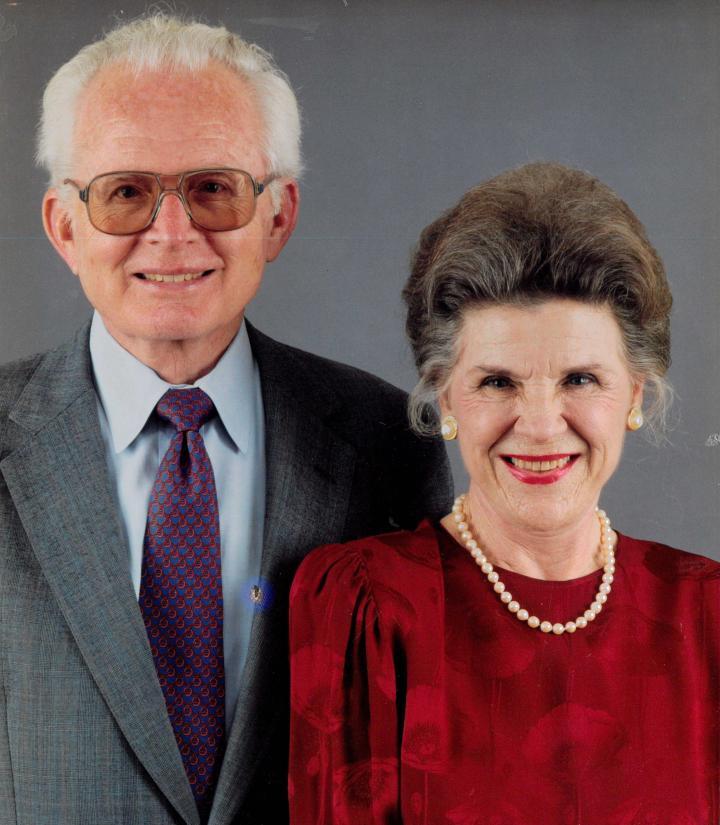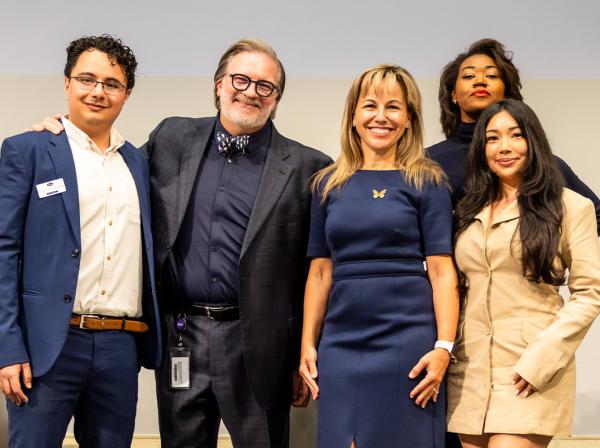Increasing Access to Mental Healthcare
The global pandemic has taken a toll on the world’s mental health, as people grieve the loss of loved ones as well as their pre-covid lives. Social isolation has fostered anxiety and depression and strained family relationships.
“We’re going through a collective trauma right now, and the pandemic has made everyone’s problems worse,” says Assistant Professor of Counseling Kerrie Taylor. But the mental healthcare that could help people cope is often financially out of reach.
Enter the St. Edward’s Community Counseling Clinic, which offers affordable therapy for Austinites and a state-of-the-art lab for Master of Arts in Counseling (MAC) students. The clinic allows students to complete their practicum supervised by professors who have taught them in multiple courses and, often, have become mentors.
Since its launch in January 2020, the clinic has served 263 clients, including individuals, couples, families and children. Clients can return for as many sessions as they need and pay a maximum of $20 per session — although many pay nothing at all.
Video As a Teaching Tool
Located in the former health clinic in East Hall, the clinic has individual therapy offices outfitted with comfortable couches, soft lighting and hidden cameras that capture video of each session. Students review the recordings to gain perspective on where they succeeded and where they could improve. Clients agree to the recording in exchange for receiving deeply discounted counseling. Faculty supervisors review recordings of higher-risk appointments and sessions where the student tried a new therapeutic technique, and use the videos as a teaching tool.

Taylor, who directs the clinic, remembers reviewing one session in which her student was taking lots of notes while the client spoke. Because the student was looking down, she was missing her client’s nonverbal cues. Watching the video with her student later, Taylor pointed out: Look, in this moment your client’s really wanting to connect with you. Their body language communicates that they were really vulnerable and were looking for validation, but you missed it.
Taylor encouraged her student to work on listening well in the moment instead of focusing on her notepad. The East Hall clinic also has a “command center” with computers and headphones that allow students and faculty to watch sessions live and learn from their peers. In the rare case where a student needs intervention — perhaps she is so nervous she doesn’t know how to get started — a supervisor can come into the room to help the session progress.
Remote Counseling Gives Clients Flexibility

Five weeks after it opened, the clinic had to move online because of the pandemic. Students now offer remote counseling through a HIPAA-compliant software that uses Zoom and records the sessions.
Although students can’t watch one another’s appointments, remote counseling — which has been adopted across the profession — has its advantages. Clients are able to attend appointments at home or in their car during their lunch break.
The world’s pivot to remote work has made it easier for students to pursue specialized training to augment their practice. The clinic encourages that kind of initiative, says Mary Moore MAC ’21, who has worked in the clinic for three semesters.
The Value of Specialized Training
Moore sought certification in EMDR, a therapy that helps clients deal with subconscious trauma. To help a client with specific needs, she also completed remote training in complicated grief therapy through the Columbia University School of Social Work. With her specialized training, she was able to help the client get “unstuck” and process her grief in a healthy way. Her professors supported her getting the training and offered guidance about how to implement it.
“They challenged me as a student clinician to go out and get whatever that client needed — and it worked,” Moore says. “The clinic has been invaluable because of the freedom to pursue continuing education and the confidence that it gives you when you’ve executed a now protocol successfully.”

Supporting the Community Counseling Clinic
To ensure that every practicum student receives high-quality supervision, the student-to-faculty supervisor ratio is kept very low. A generous gift from the Charles and Betti Saunders Foundation will allow the clinic to add an additional supervisor in the coming spring semesters, doubling the number of MAC students who can complete their practicum at the clinic — and expanding Austinites’ access to affordable counseling.
The Saunders family includes Ian Smith ’03, MAC ’05, who has his own counseling practice, specializing in children, teens and young adults.


